Are Chicken Gizzards Good for Dogs? – A Pet Nutrition Guide
Many dog owners wonder can dogs eat chicken gizzards. Cchicken gizzards are a healthy option for their furry friends. In this article, I will provide you with a comprehensive pet nutrition guide to help you understand the benefits and considerations of feeding chicken gizzards to your dog.
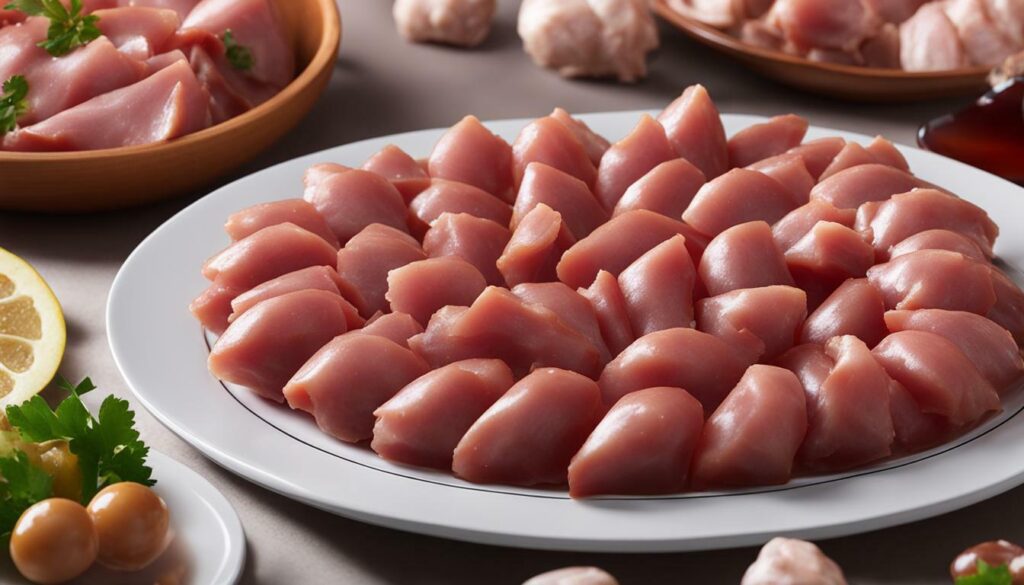
- YES, dogs can eat chicken gizzards. Chicken gizzards can be a healthy occasional treat for dogs.
- They are rich in lean protein, vitamins, and minerals.
- Gizzards can be boiled, steamed, or sauteed without added fat or seasoning.
- Introduce gizzards slowly and do not exceed 10% of your dog’s caloric intake with treats.
- Gizzards can be fed raw or cooked, but cooked bones should not be given to dogs.
The Nutritional Benefits of Chicken Gizzards for Dogs
Chicken gizzards are a great source of lean protein, vitamins, and minerals for dogs. They offer a nutritious boost to your pet’s diet, providing essential nutrients that can support their overall health and well-being. As an organ meat, chicken gizzards contain high levels of protein, which is crucial for muscle development and repair. Protein also plays a vital role in maintaining a strong immune system and healthy skin and coat.
In addition to protein, chicken gizzards are rich in vitamins and minerals that are essential for your dog’s health. They are a good source of iron, which helps in the production of red blood cells and promotes oxygen transport throughout the body.
Gizzards also contain B vitamins, including niacin, thiamine, and riboflavin, which are important for energy metabolism and overall cellular function. These vitamins support proper digestion, nerve function, and the healthy growth of tissues and organs.
When feeding chicken gizzards to your dog, it’s important to ensure safe consumption. You can cook them by boiling, steaming, or sautéing without added fat or seasoning. Avoid giving your dog cooked bones, as they can easily break and cause intestinal damage.
It’s also essential to introduce gizzards slowly and not exceed 10% of your dog’s caloric intake with treats. If you prefer to feed your dog raw gizzards, make sure they are sourced from a trusted supplier and are of high quality.
The Nutritional Benefits of Chicken Livers and Hearts
In addition to gizzards, chicken livers and hearts are also safe and nutritious options for dogs. Chicken livers are packed with vitamins A and B, as well as iron and zinc. These nutrients support eye health, promote a healthy coat, and contribute to a strong immune system. Chicken hearts are an excellent source of taurine, an amino acid that is essential for heart health and proper functioning. Freeze-dried chicken hearts can also be used as a healthy and convenient treat for your furry friend.
| Nutrient | Chicken Gizzards (100g) | Chicken Livers (100g) | Chicken Hearts (100g) |
|---|---|---|---|
| Protein | 19g | 24g | 17g |
| Iron | 2.8mg | 9.9mg | 2.6mg |
| Vitamin A | 6,200IU | 13,400IU | 0IU |
| Vitamin B12 | 1.4μg | 59.6μg | 6.4μg |
Remember, while chicken gizzards, livers, and hearts offer many nutritional benefits, they should be given in moderation and as part of a balanced diet. Always consult with your veterinarian before making any significant changes to your dog’s diet to ensure their specific nutritional needs are met.
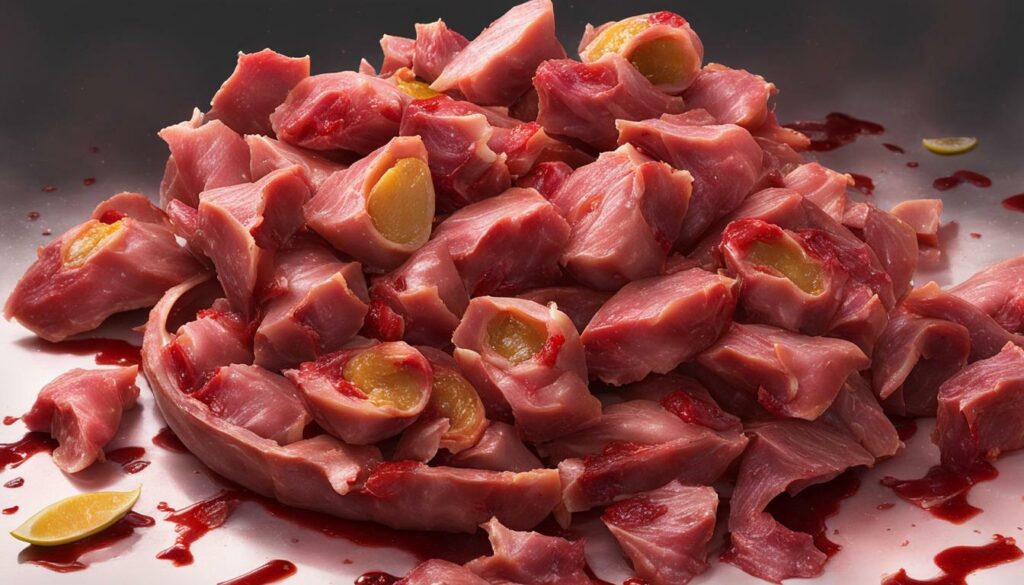
Preparing and Serving Chicken Gizzards to Your Dog
There are several ways you can prepare and serve chicken gizzards to your dog to ensure they are safe and enjoyable. One option is to cook the gizzards by boiling, steaming, or sauteing them without added fat or seasoning. This helps to preserve their nutritional value while making them easier for your dog to digest. Remember to cool them before serving.
If you prefer to feed the gizzards raw, ensure they are fresh and of high quality. Raw chicken gizzards can provide your dog with additional enzymes and nutrients. However, it’s important to note that raw feeding carries a higher risk of bacterial contamination, so take necessary precautions to handle and store the gizzards safely. Always consult with your veterinarian before introducing raw food into your dog’s diet.
When feeding gizzards to your dog, it’s essential to consider portion control. Treats, including gizzards, should make up no more than 10% of your dog’s daily caloric intake. Excessive treats can lead to weight gain and nutritional imbalances. To ensure a balanced diet, you can mix gizzards with other organ meats, such as chicken livers and hearts, or incorporate them into homemade dog food recipes. Just be cautious not to exceed your dog’s overall caloric needs.
Table: Cooking Methods for Chicken Gizzards
| Method | Instructions |
|---|---|
| Boiling | Place gizzards in a pot of boiling water and cook for about 30 minutes or until tender. Drain and let cool before serving. |
| Steaming | Steam gizzards in a steamer basket for approximately 20-25 minutes until fully cooked. Allow them to cool before feeding. |
| Sauteing | Heat a non-stick skillet over medium heat. Add gizzards and cook for around 10-12 minutes until browned and cooked through. Cool before offering to your dog. |
Remember, while chicken gizzards can be a nutritious addition to your dog’s diet, cooked bones, including those found in gizzards, should never be given to dogs. These bones can splinter easily and cause intestinal damage. To ensure your dog’s safety, remove any bones before serving the gizzards.
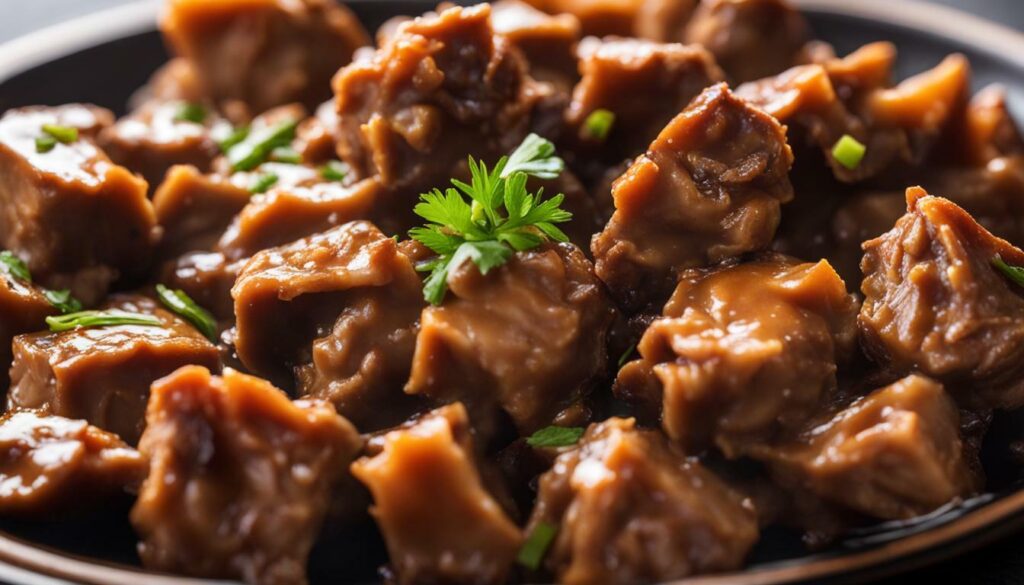
Conclusion
Chicken gizzards can be a valuable component of a healthy and balanced diet for dogs, providing them with important nutrients and variety in their meals. These small, muscular organs are packed with lean protein, vitamins, and minerals that can support your dog’s overall health and well-being.
When preparing gizzards for your furry friend, it’s crucial to cook them thoroughly to ensure safe consumption. You can opt for boiling, steaming, or sautéing them without adding any fat or seasoning. By avoiding added ingredients, you can maintain the nutritional integrity of the gizzards and prevent any potential harm to your dog’s health.
Introducing gizzards into your dog’s diet should be done gradually and in moderation. Treats, including gizzards, should not exceed 10% of your dog’s daily caloric intake. This ensures that your dog receives a well-balanced diet and doesn’t consume excessive calories or nutrients.
Furthermore, it’s important to note that gizzards can be fed to your dog both raw or cooked, depending on your preference. Additionally, you can mix gizzards with other organ meats, such as chicken livers and hearts, to provide your dog with a variety of nutritional benefits. Freeze-dried chicken hearts can also be a healthy and convenient treat option.
Remember, while gizzards can be a nutritious addition to your dog’s meals, it’s always best to consult with your veterinarian before making any significant changes to their diet. Your vet can provide personalized advice based on your dog’s specific needs and dietary requirements.
FAQ
Are chicken gizzards safe for dogs to eat?
Yes, chicken gizzards are a healthy occasional treat for dogs and are rich in lean protein, vitamins, and minerals.
How should I prepare chicken gizzards for my dog?
Chicken gizzards can be boiled, steamed, or sauteed without added fat or seasoning to ensure safe consumption.
Can I feed my dog raw chicken gizzards?
Yes, gizzards can be fed raw or cooked. However, always make sure to source them from a reputable supplier and handle them safely to prevent bacterial contamination.
Can I mix gizzards with other organ meats for my dog’s diet?
Yes, chicken gizzards can be mixed with other organ meats like chicken livers and hearts as part of a balanced diet for your dog.
Can I give my dog cooked bones along with gizzards?
No, cooked bones should not be given to dogs as they can easily break and cause intestinal damage. Stick to feeding your dog gizzards and other safe organ meats.
Can I use freeze-dried chicken hearts as a treat for my dog?
Yes, freeze-dried chicken hearts are a healthy and nutritious option to use as a treat for your dog.
Are there any benefits to feeding dogs chicken gizzards?
Yes, chicken gizzards are a good source of protein, vitamins, and minerals. They also contain glucosamine, which is beneficial for joint health.
Can dogs eat other chicken organs like hearts?
Yes, dogs can also eat chicken hearts. Like gizzards, chicken hearts are a nutritious organ meat that can be included in a dog’s diet.
Can I give my dog chicken gizzards as a regular part of their diet?
Yes, you can include chicken gizzards as a regular part of your dog’s diet. However, it is important to consult with your veterinarian to determine the appropriate amount based on your dog’s individual needs.
Can I feed my dog cooked chicken gizzards?
Yes, you can feed your dog cooked chicken gizzards. Cooking them thoroughly ensures that any potential pathogens are eliminated.
Can chicken gizzards be included in homemade dog food?
Absolutely! Chicken gizzards can be a great addition to homemade dog food recipes. Just ensure that the recipe is well-balanced and meets all of your dog’s nutritional needs.
Are there any risks associated with feeding dogs chicken gizzards?
While chicken gizzards are generally safe for dogs, there is a risk of choking or digestive upset if they are not properly chewed or if your dog has a sensitive stomach. It’s always important to monitor your dog when feeding them new foods
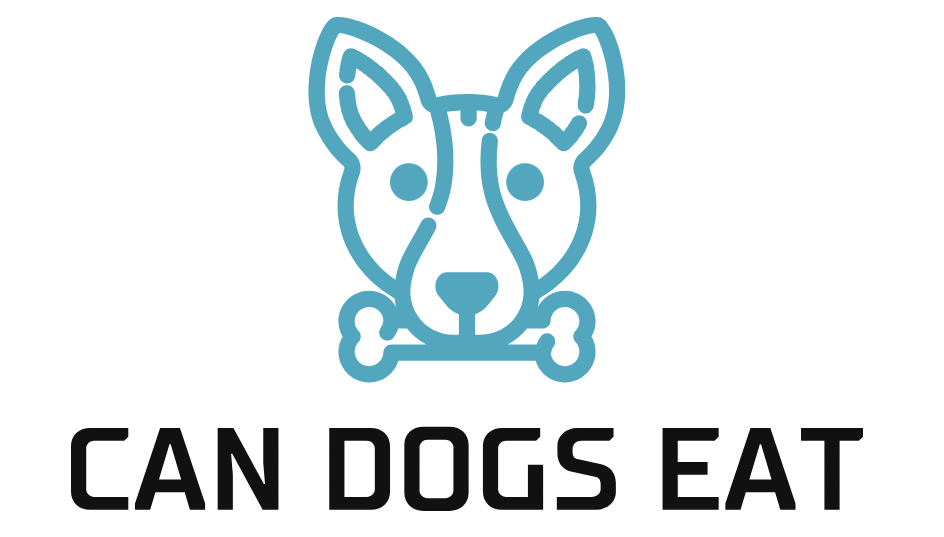
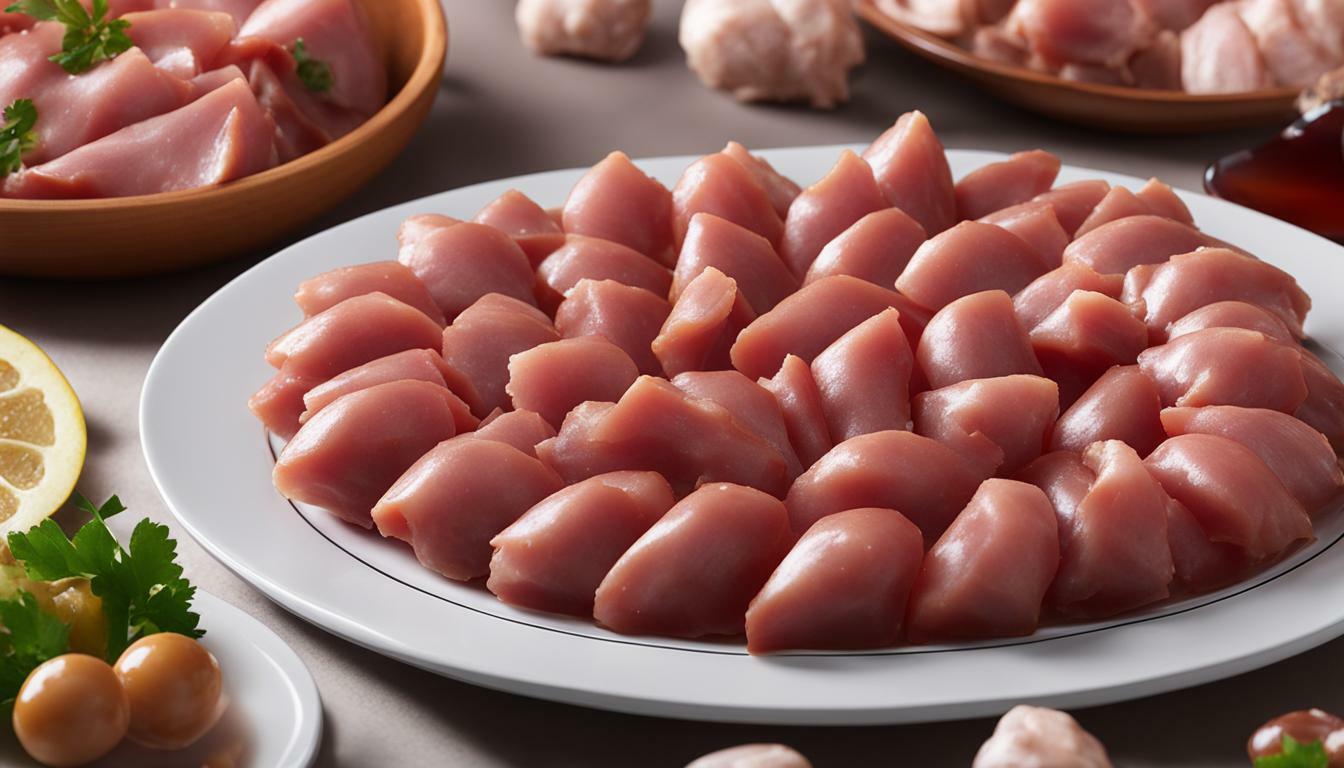

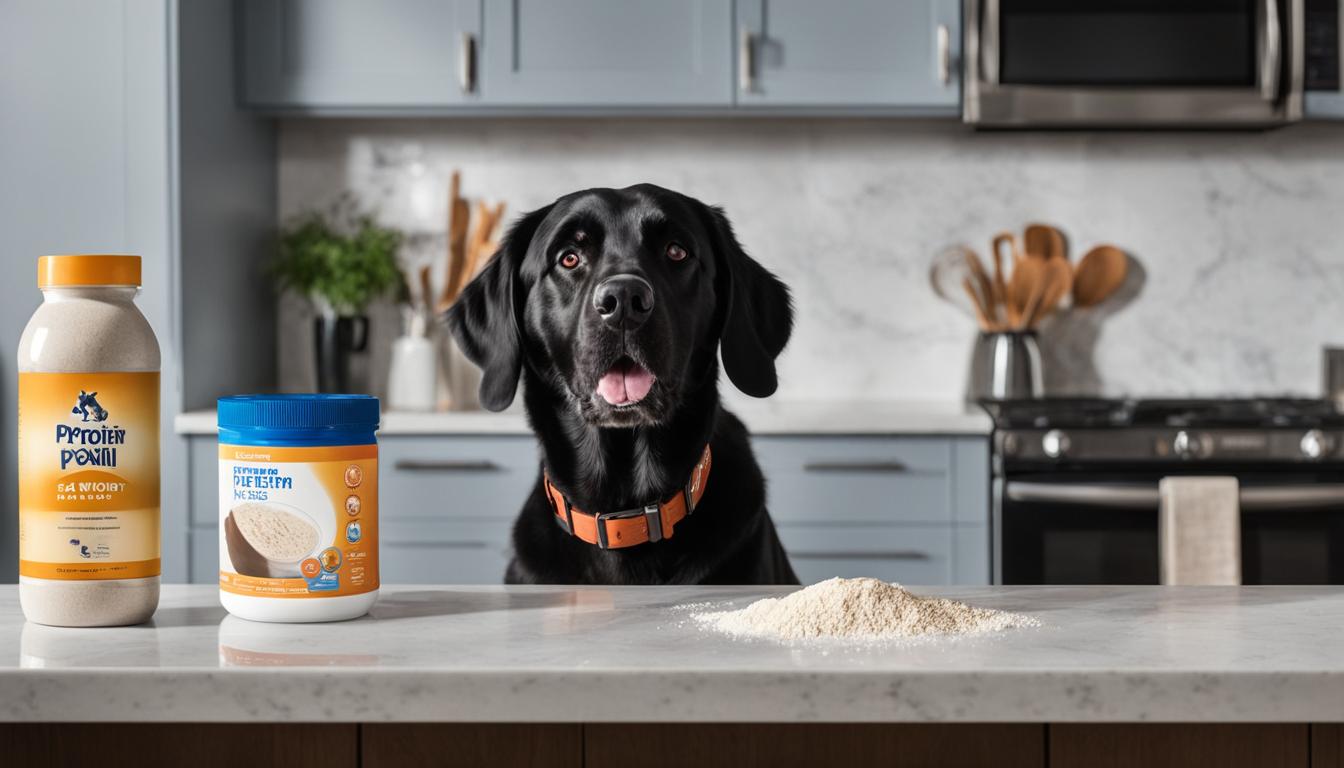

Leave a Reply